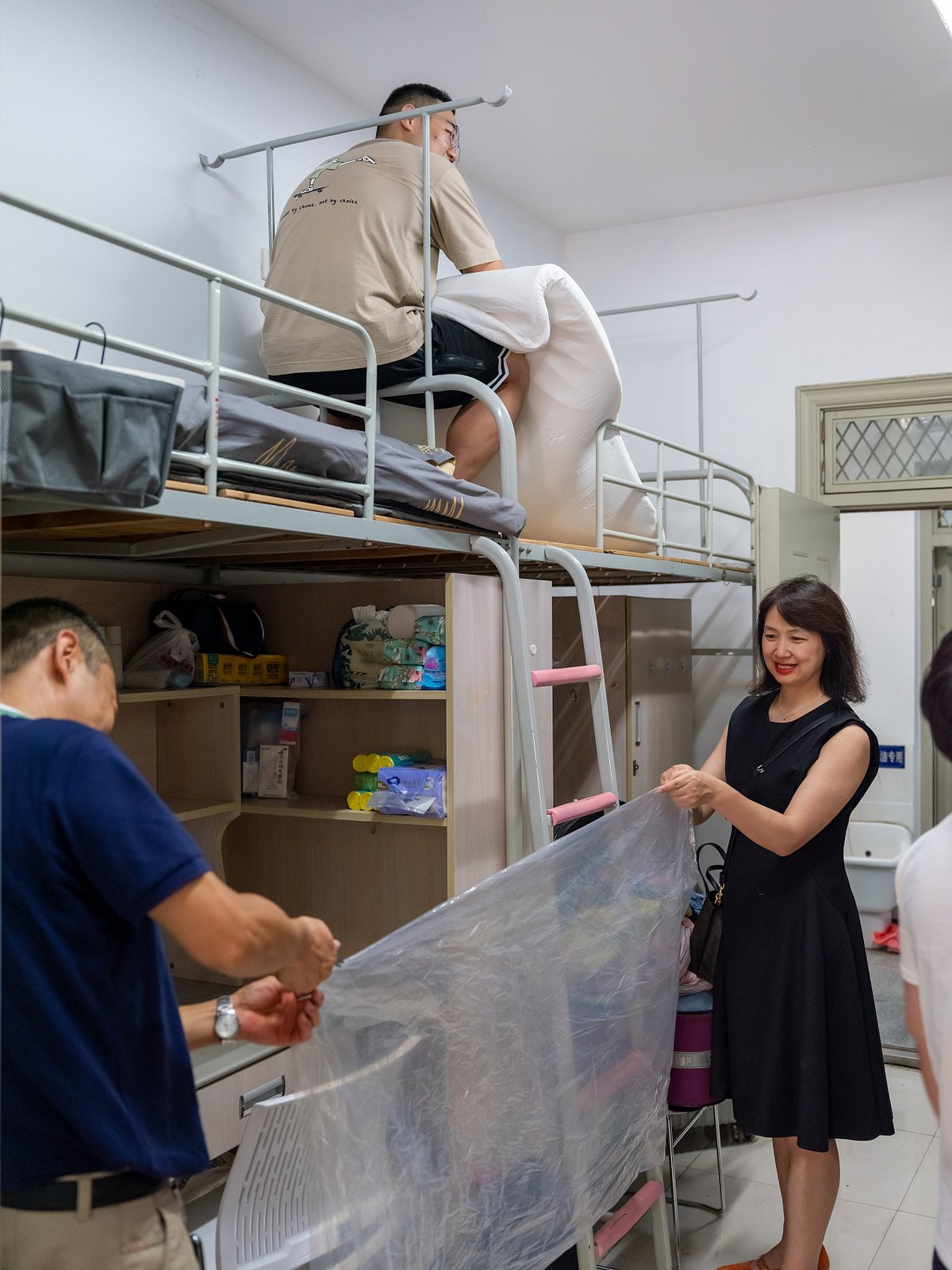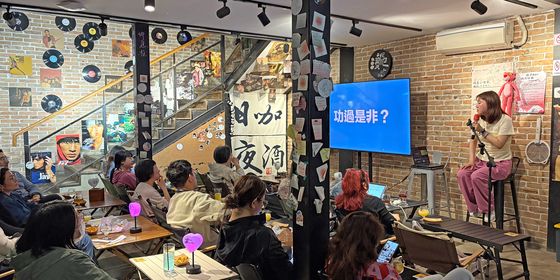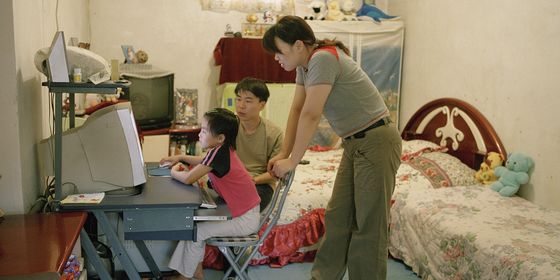Are parent groups essential for ensuring student safety, or do they hinder student growth?
When 20-year-old college sophomore Jiang Yihao was planning her Labor Day holiday this past May, she was surprised to find she required her parents consent in order to leave campus. Her classmates also informed her that their counselor had formed a group chat with the parents. “I feel like I was kept like a baby… I’m an adult now, why can’t I live my own life?” says Jiang.
Jiang’s experience is not uncommon among Chinese college students. Parents have become more involved in their children’s campus life in recent years. Many universities—from the country’s top institutions like the National University of Defense Technology and Shanghai University of Finance and Economics to vocational schools such as Meiga Polytechnic Institute of Hubei—have tasked college counselors, whose job already includes providing guidance on students’ academic, career, and personal lives, with forming group chats with parents and updating them with the latest announcements from the school. Some, like the prestigious Zhejiang University and Shanghai Jiao Tong University, even go a step further by sending transcripts to parents at the end of each semester.
Chinese media has termed the phenomenon “high-schoolization (高中化)” of university education, highlighting the increasingly exam-focused environment and the tight supervision from parents and teachers at the college level. A related hashtag on the microblogging site Weibo has garnered more than 22 million views, with most netizens criticizing these excessive oversights.
“Maybe PhD students will also need parent-teacher meetings in the future,” one popular comment with over 700 “likes” on the social media platform Xiaohongshu reads. Another shares an experience of how their 40-year-old classmate, who is already a parent themselves, still needs their parents to sign off for off-campus accommodations.
Read more on college life in China:
- The College Grads Who Took Up Blue-collar Jobs
- Why Are China’s Campuses Closed to the Public?
- Why Is No One Hiring Liberal Arts Students in China?
Despite criticism online, universities in China have heightened supervision, especially during the pandemic, citing safety concerns. “During the pandemic, if we wanted to leave the campus, we needed our parents to send a text message to apply for permission,” 19-year-old Li Qingqing from Southwest University of Political Science & Law recalls. After pandemic controls ended, schools across the country eased the micromanagement of students, but in some universities, the mechanism for reporting when leaving campus during holidays remained.
Compounding the issue are incidents of tragic deaths and missing college students that have made headlines in recent years. In December 2022, a medical student surnamed Chen at Sichuan University, was found dead from sudden cardiac arrest in his dormitory. His parents later accused the school of negligence for forcing the student to do residency work even when he was sick. The incident has triggered public debate about how universities should better care for their students.
Wang Chenfeng, a college counselor in Hubei province, told the Chinese media outlet Beijing Youth Daily in May that universities now face pressure from the government and public opinion. “The entire school, including counselors and the teaching staff, would be penalized if extreme incidents occur,” said Wang.
The worsening mental health issues among college students have also prompted many schools to increase their management and oversight of students. A survey jointly released by the Institute of Psychology of the Chinese Academy of Sciences and the Social Sciences Academic Press shows that approximately 21 percent of college students are at risk of depression. Chinese media outlet Mass Daily also reports that suicide has become the top cause of death among youth aged 15 to 34 years old.
Bao Wei, an education professor at Peking University, wrote in the academic journal China Science Daily last October that many incoming college students are only children born after 2005. Due to the high level of attention they received growing up, they have strong self-awareness but relatively weak interpersonal skills, with low self-control and poor resilience to setbacks and pressure, he posits.
Schools believe that maintaining constant communication with parents can prevent tragedies from occurring, or at least reduce the universities’ responsibility in the event that they do. “The school’s approach, to some extent, sacrifices the interests of a small number of people to prevent more severe situations from happening,” said Wang.
These measures can provide peace of mind to parents as well. “This way, I can know what is going on with my child. I’ll be notified right away if they’re bullied or go missing,” a netizen from Henan province commented on Douyin (China’s version of TikTok).
Bao points out in another interview with Guangdong Yangcheng Evening News that, apart from safety concerns, this generation of parents is deeply involved in their children’s university life because they feel pressure and anxiety concerning their children’s future employment. In 2023, over 11 million students graduated from college. This record-high number is expected to grow in the coming years, making the job market even more competitive in a slowed economy.
Wang’s school has started mailing transcripts to parents by the end of the semester. “Sending report cards can cause disputes within the family, but students being scolded is a small price to pay so parents can know more about their children and urge them to study harder,” said Wang. Li’s counselor also shares students’ employment statuses within the parent group, hoping the parents will urge the students to find jobs.
Xia Jing, a 28-year-old college counselor at Wenzhou Business College, echoes this sentiment, saying, “Many parents have requested to know more about my students.” Even though her school doesn’t mandate parent groups, she does it anyway to share with them her students’ academic performance, competition achievements, or whether they have been disciplined. “If my student is frequently absent from class, I need to inform the parents in a timely manner. If not, parents will blame me when their child gets disciplined by the school,” Xia explains. Rather than distancing herself from the parents, Xia believes that building connections with them will make her job easier.
While establishing parent groups provides convenience for schools and parents, it is questionable whether it is a good educational approach for students. Lin Huiying, a college counselor for over 10 years, told Beijing Youth Daily in May that university should be a place where students can grow on their own, even if they are forced to do so because their capabilities don’t match their age after years of care under their parents. She is sad to see universities not treating their students as adults because they fear getting in trouble. “We need to help students grow into independent, accountable, and responsible individuals,” said Lin. “The current management methods, to some extent, underestimate our students’ abilities.”
These management measures are not well received among students. “Most of my classmates are against setting up parent groups,” the 20-year-old student Jiang tells TWOC. “It’s like keeping us captive… Do we have to report our performance to our parents when we enter the workplace?”
According to the state media outlet Shanghai Observer, a recent student poll showed that over 57 percent are against forming parent groups, with only 7 percent in favor.
Despite this, parent groups are still mushrooming on China’s college campuses. Unable to change the status quo, many college students have resorted to exploiting loopholes. “Some of my classmates would impersonate their parents to join the group,” Jiang tells TWOC.
Additionally, a small portion of parents have refused to join these groups because they don’t want to micromanage their children. Jiang has asked her parents not to join the group despite pressure from her teachers. So far, her life hasn’t been affected by their absence, and she is allowed to leave campus after submitting the consent form.
“No one can avoid problems and risks forever, so rather than relying on parents, it’s better to solve problems on your own,” says Jiang.














